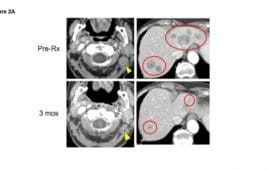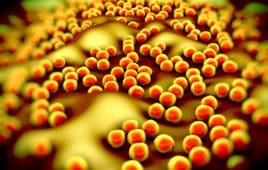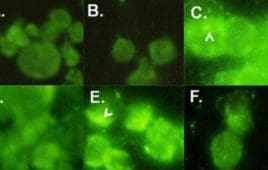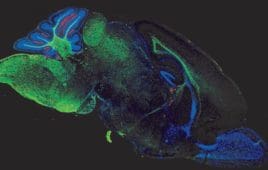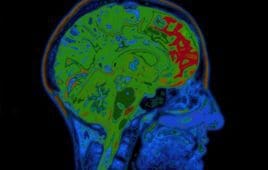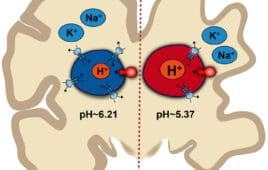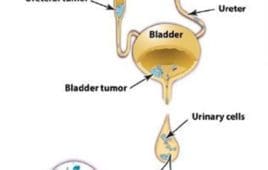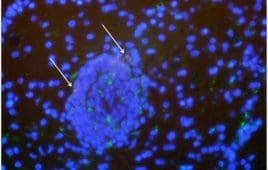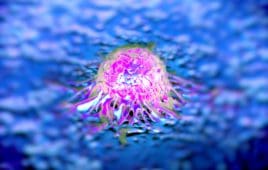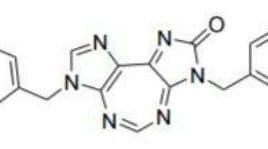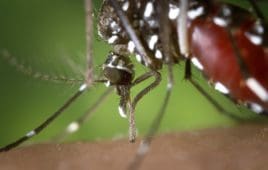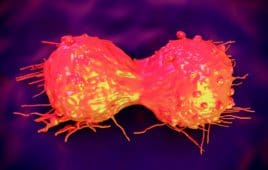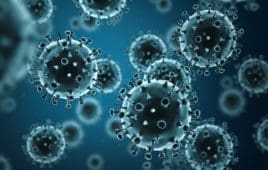
Experimental Drug Delivers One-two Punch to Vision Loss
Immunotherapy Appears Better Than Chemotherapy for Aggressive Type of Skin Cancer
The first study of the immunotherapy drug pembrolizumab as the initial treatment for patients with a rare but aggressive form of skin cancer known as Merkel cell carcinoma reports better responses and longer survival than expected with conventional chemotherapy. The study, co-led by Suzanne Topalian, M.D., associate director of the Bloomberg~Kimmel Institute for Cancer Immunotherapy…
Mouse Studies Advance Search for New Class of Antidepressants
Whole Genome Sequencing Method May Speed Personalized Treatment of Drug-Resistant Infections
Hopkins Researchers ID New Biomarker for Colorectal Cancers
Johns Hopkins researchers have identified a protein involved in cell proliferation and the development of new blood vessels that could serve as a marker for the early detection of colorectal cancers. In laboratory studies, investigators found that expression of the protein, called beta-1,4-galactosyltransferase-V (beta-1,4-GalT-V), was increased in human colorectal cancer tumor cells compared with normal…
Johns Hopkins Researchers Find the Cause of and Cure for Brain Injury Associated With Gut Condition
Using a mouse model of necrotizing enterocolitis (NEC) — a potentially fatal condition that causes a premature infant’s gut to suddenly die — researchers at Johns Hopkins say they have uncovered the molecular causes of the condition and its associated brain injury. The discovery enabled the team to combine efforts with colleagues studying brain inflammation…
Spread of Deadly Eye Cancer Halted in Cells, Animals
Records Study Links Dementia-Related Brain Changes to Hospital Stays For Critical Illness
Researchers at Johns Hopkins report that a novel analysis of more than a thousand patients adds to evidence that hospitalization, critical illness and major infection may diminish brain structures that are most commonly affected by Alzheimer’s disease. Results of the study, published Sept. 24 in the Journal of the American Geriatrics Society, suggest — but do not…
pH Imbalance in Brain Cells may Contribute to Alzheimer’s Disease
Johns Hopkins Medicine scientists say they have found new evidence in lab-grown mouse brain cells, called astrocytes, that one root of Alzheimer’s disease may be a simple imbalance in acid-alkaline–or pH–chemistry inside endosomes, the nutrient and chemical cargo shuttles in cells. Astrocytes work to clear so-called amyloid beta proteins from the spaces between neurons, but…
Experimental Drug Reverses Hair Loss and Skin Damage Linked to Fatty Diet
Drug Now in Clinical Trials for Parkinson’s Strengthens Heart Contractions in Animals
Activating Two Receptors Along Chemical Pathways May Provide Pain Relief at a Lower Opioid Dose
Common Diabetes Drug Found Safe For Most Diabetics With Kidney Disease
Results of a large-scale study suggest that the oral diabetes drug metformin is safe for most diabetics who also have chronic kidney disease (CKD). The study of more than 150,000 adults by Johns Hopkins Medicine investigators found that metformin’s association with the development of a life-threatening condition called lactic acidosis was seen only among patients with severely decreased kidney…
Evidence Mounts That Daily Opioid Users May Fare Worse After Spine Surgery
In a multicenter database study of adults who had undergone surgery for spinal deformities, researchers say that those who had used narcotics daily on average had worse outcomes, such as longer intensive care unit stays and more severe postop disability, compared with those who did not use opioids preoperatively. A report of the findings published…
Animal Study Suggests Common Diabetes Drug May Also Help with Nicotine Withdrawal
Gene-based Test for Urine Detects, Monitors Bladder Cancer
Researchers at The Johns Hopkins Kimmel Cancer Center have developed a test for urine, gathered during a routine procedure, to detect DNA mutations identified with urothelial cancers. UroSEEK uses urine samples to seek out mutations in 11 genes or the presence of abnormal numbers of chromosomes that would indicate the presence of DNA associated with bladder cancer…
Researchers Urge Caution Around Psilocybin Use
In a survey of almost 2,000 people who said they had had a past negative experience when taking psilocybin-containing “magic mushrooms,” Johns Hopkins researchers say that more than 10 percent believed their worst “bad trip” had put themselves or others in harm’s way, and a substantial majority called their most distressing episode one of the…
HIV ‘Shock and Kill’ Strategy May Harm Patient Brains
‘Shock and kill’ strategy for curing HIV may endanger patients’ brains. Combination drug treatments have become successful at long-term control of HIV infection, but the goal of totally wiping out the virus and curing patients has so far been stymied by HIV’s ability to hide out in cells and become dormant for long periods of…
Experimental Drug Delivers One-Two Punch to Prostate Cancer Cells
Experimental Drug Delivers Punch to Prostate Cancer Cells
An experimental drug that targets abnormally high levels of a protein linked to cancer growth appears to significantly reduce the proliferation of prostate cancer cells in laboratory cell cultures and animals, while also making these cells considerably more vulnerable to radiation, according to results of a study led by Johns Hopkins scientists. The findings, published…
New Hope for Zika Treatment Found in Large-Scale Screen of Existing Drugs
Johns Hopkins researchers join collaborative group to screen 6,000 existing drugs in hopes of finding treatments for Zika virus infection. Scientists report that a specialized drug screen test using lab-grown human cells has revealed two classes of compounds already in the pharmaceutical arsenal that may work against mosquito-borne Zika virus infections. In a summary of their work,…


